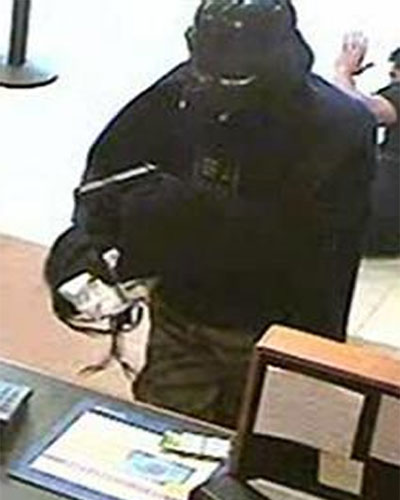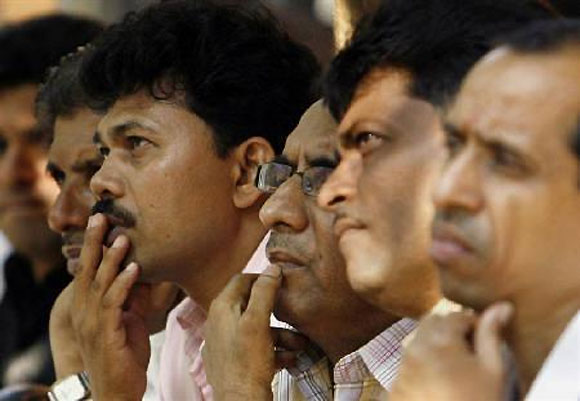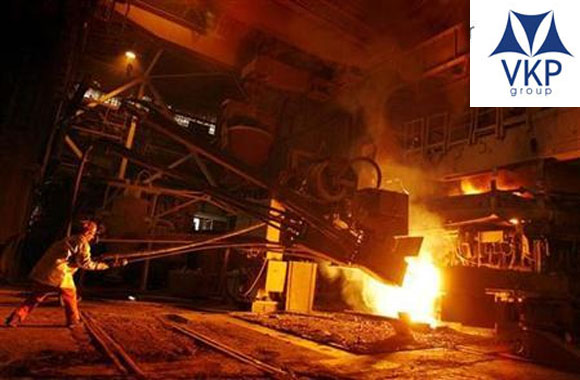
Vikash Metal & Power says it lost a building and other stuff worth Rs 90 cr to an "incident of robbery" and auditors endorsed it
You’ve heard of people robbing things from a building. You might have even heard of entire premises being emptied by crooks. But have you ever heard of robbers walking away with the building itself?
It happened in West Bengal’s Purulia last year. At least, that was what the victim, a listed company, told its shareholders in its latest annual report.
The facts of the case presented by the company and endorsed by its auditors challenge the accounting notion of ‘immovable property’ and raises questions about the level of oversight by various regulatory authorities, say market watchers.
On April 12, 2012, Kolkata-based steel maker Vikash Metal & Power says it was the victim of a robbery at its plant site in Poradiha village of Purulia district.
Among what was taken away were a factory shed, a building, heavy machinery used to make steel rods and stock worth crores of rupees.
The company informed the stock exchange a little more than two months later, on June 21, saying a police complaint and an insurance claim had been filed but without revealing the extent of loss.
Click on NEXT for more...

A detailed version came in the annual report put before the shareholders six months later.For the year ended June 30, 2012, the company clocked revenue of Rs 476 crore (Rs 4.76 billion) and reported a loss of Rs 179 crore (Rs 1.79 billion).
Over half or Rs 90.4 crore (Rs 904 million) was ‘exceptional item (loss due to robbery)’. Note number 25 to the accounts itemised it as plant & machinery worth Rs 51.3 crore (Rs 513 million) robbed; value of stock lost, Rs 26 crore (Rs 260 million). And, even factory shed and buildings stolen, worth about Rs 12 crore (Rs 120 million).
Elsewhere another note in the annual report said, “As the robbery was on April 12, depreciation on the itebillion)m lost was taken till that date and removed from the gross block and accumulated depreciation, and booked as loss due to robbery under extraordinary item. The written down value as on the date of incident was booked as loss under the profit & loss account.”
What about the insurance claim the company had earlier said it had made? "The company has filled the insurance claim but as the time period will be long to get the claim, loss was booked to show the clear picture of financial statements,” the note added.
Auditors Rakesh Singh & Co in their report said, “Major parts of plant has been reported lost and looted, thus putting the question on the going concern concept of the company and, moreover, the company operation was suspended from October 2011.”
Conveniently, the robbers also took away the registers where the company had recorded the details of its fixed assets. “This (was) maintained at the factory which is missing after the robbery and could not be presented to us for verification,” the auditor said.
“This is the first time I am seeing something like this. Looks like a total fraud. It raises several questions as to what the auditors and independent directors are doing,” said R Balakrishnan, a senior market expert and columnist.
Click on NEXT for more...

Who were they?
Vikash Metal hit the market in 2005 with an Initial Public Offer of Rs 25 crore. It offered Rs 10 shares at a 100 per cent premium, at Rs 20 each.
Kolkata-based Microsec India was the merchant banker. According to the offer document cleared by the Securities and Exchange Board of India, the company raised the money to fund the very plant in Purulia that was “robbed” seven years later.
The IPO document also talks about public sector banks such as UBI and UCO Bank funding the project.
The promoters’ group consists of Vimal Kumar Patni, 63, and sons Vikash Patni and Akash Patni. While the father was chairman, both sons were on the board, with Vikash the managing director.
In the early days, the promoter group held nearly 59 per cent in the company. In the latest shareholding pattern, the promoter group held a little over 15 per cent. Even these shares are pledged with lenders. An email sent to the company’s email ID, given on the BSE website, bounced. A second email to a different ID given in the VKP group website got no response.
Two institutions, Bank of New York Mellon (BoNY)and Ushdev International hold 41.48 per cent and 9.1 per cent, respectively. BoNY is a custodian and typically holds shares on behalf of other institutions. It came to own 47 per cent in the quarter ending June 2011.
It is likely that some lenders who held the shares pledged by promoters parked it with BoNY, say marketmen. In the next few months, by October 2011, the company suspended operations.
Vikash’s troubles peaked around early 2012, when it failed to comply with the listing agreement requirement of filing quarterly results. In April 2012, the National Stock Exchange suspended the scrip for “Non-compliance with provisions of the listing agreement (including) non- submission of financial results for the quarter ended December 31, 2011.”
The scrip continued to trade in the BSE, hitting newer lows. Before the incidents, in February 2012, the stock was trading at Rs 11. This Wednesday, it ended with losses of 4.9 per cent, closing at 58 p a share.
The Patni family members had interest in another listed firm, Impex Ferro Tech. When Vikash listed, it was projected as a part of the ‘Impex group’. However, as of the latest filings, Vimal and sons do not hold any shares in Impex.